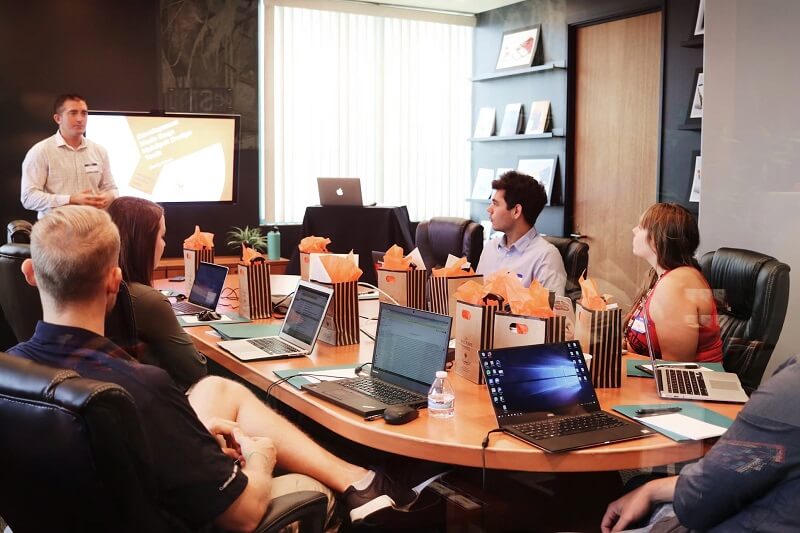How to answer What Are Your Strengths and Weaknesses
When preparing for a job interview, one of the most common and critical questions is, "What are your strengths and weaknesses?" This question provides hiring managers with valuable insights into your self-awareness, confidence, and ability to reflect on both positive and challenging aspects of your character and professional skills. In this guide, we will discuss how to address this question effectively, ensuring you leave a lasting impression.
1. Why Employers Ask About Your Strengths and Weaknesses
Employers ask about your strengths and weaknesses to assess both your qualifications for the job and your self-awareness. By sharing your strengths, you can demonstrate how well-suited you are for the role. On the other hand, discussing weaknesses shows your ability to reflect on areas for improvement. Answering this question effectively requires careful consideration and a balanced approach.

1.1. Highlighting Your Strengths
When discussing your strengths, focus on qualities that directly relate to the job you’re applying for. For example, if you’re interviewing for a leadership position, emphasize strengths like communication, decision-making, and the ability to inspire others. Tailoring your strengths to the job description will make your response more relevant and impactful.
1.2. Addressing Your Weaknesses
While discussing weaknesses may seem daunting, it’s an opportunity to show growth and self-improvement. Choose a weakness that is honest but not detrimental to the role. For instance, you could mention a technical skill you’re working on or a soft skill like time management and explain the steps you’ve taken to improve.
2. Common Strengths and How to Showcase Them
When answering "What are your strengths and weaknesses?" It's important to focus on strengths that make you a good fit for the job. Here are some common strengths you might consider highlighting:
2.1. Communication Skills

Strong communication skills are highly valued in nearly every profession. If communication is one of your strengths, share examples of how you’ve used this skill to collaborate effectively, solve problems, or lead a team. Tailoring your response to the specific communication needs of the job can make your answer more relevant.
2.2. Problem-Solving Abilities
Employers love candidates who can think critically and solve problems efficiently. Highlighting problem-solving as one of your strengths can demonstrate that you’re proactive and capable of handling challenges. Be sure to include examples from previous roles where you successfully navigated complex issues.
2.3. Leadership Qualities
If you’re applying for a managerial or leadership role, emphasizing leadership as one of your strengths is essential. Discuss your ability to lead teams, make strategic decisions, and foster a collaborative environment. Give concrete examples of how you’ve successfully led projects or initiatives in the past.
3. Common Weaknesses and How to Address Them
Just as important as discussing strengths is addressing weaknesses in a professional and constructive manner. Here are some examples of weaknesses that can be turned into growth opportunities:
3.1.Time Management

Time management is a common challenge for many professionals. If you choose this as your weakness, be honest about the struggles you’ve faced in managing time effectively. Then, explain the steps you’ve taken to improve, such as using scheduling tools or prioritizing tasks more effectively.
3.2 Public Speaking
Public speaking can be daunting, but if it’s something you struggle with, you can frame it as an area for improvement. Mention any efforts you’ve made to improve, such as taking public speaking courses or volunteering for presentations at work.
3.3 Perfectionism
While striving for perfection can seem like a positive trait, it can also lead to overworking and unnecessary stress. If you choose perfectionism as a weakness, explain how you’ve learned to balance quality work with meeting deadlines and avoiding burnout.
4. Tailoring Your Strengths and Weaknesses to the Job
It’s crucial to tailor your response to the specific job you’re applying for. When answering "What are your strengths and weaknesses?" align your strengths with the job requirements, and choose weaknesses that won’t significantly affect your ability to perform in the role.

4.1. Research the Job Description
Before your interview, carefully review the job description. Look for keywords and phrases that highlight the skills and qualities the employer is seeking. These should guide you in selecting which strengths to emphasize. For example, if the job description emphasizes teamwork, focus on your collaborative skills as a strength.
4.2. Align Your Strengths with the Job
When you know what the employer values, you can tailor your strengths to show that you’re the perfect fit. If the role requires attention to detail, mention a project where your meticulous nature led to success. If leadership is crucial, discuss a time when you effectively managed a team.
4.3. Frame Your Weaknesses Carefully
It’s important to be honest about your weaknesses, but you don’t want to choose one that will make the employer doubt your ability to succeed. For instance, if the job requires strong organizational skills, don’t mention disorganization as a weakness. Instead, choose a minor weakness that you’re actively working to improve.
5. Sample Answers for “What Are Your Strengths and Weaknesses?”
To help you prepare, here are some sample answers to the question, "What are your strengths and weaknesses?" tailored to different types of job interviews.
5.1. Strengths and Weaknesses for a Leadership Role
Strength: “One of my biggest strengths is my ability to lead teams effectively. In my previous role, I led a team of 10 people, and we consistently met our project deadlines. I have a knack for motivating others and fostering a positive work environment.”
Weakness: “One area I’m working on is delegation. Sometimes, I take on too many tasks myself because I want everything to be perfect. However, I’ve been actively working on this by trusting my team more and allowing them to take ownership of their responsibilities.”
5.2. Strengths and Weaknesses for a Technical Role

Strength: “I have strong problem-solving skills, which have helped me tackle complex technical issues in my previous roles. I enjoy working through challenges, finding solutions, and implementing them efficiently.”
Weakness: “I’ve realized that I sometimes struggle with communicating technical details to non-technical team members. To address this, I’ve been working on simplifying my explanations and using analogies to make complex concepts more understandable.”
5.3. Strengths and Weaknesses for Fresh Graduates
Strength: “As a recent graduate, I bring fresh perspectives and enthusiasm to the workplace. My academic background in [your field] has given me a solid foundation in [relevant skills], and I’m eager to apply what I’ve learned in a professional setting.”
Weakness: “One area I’m working on is gaining practical experience. While I have a strong theoretical understanding, I know there’s always more to learn. I’m looking forward to developing my skills further in this role.”
6. Conclusion: How to Master the Strengths and Weaknesses Question
The interview question "What are your strengths and weaknesses?" may seem daunting, but with the right preparation, you can turn it into an opportunity to shine. By tailoring your answers to the job, showcasing your strengths, and framing your weaknesses as areas for growth, you’ll leave a positive impression on the hiring manager.
Remember to be honest, reflective, and professional in your responses. With thoughtful preparation, this question can help you stand out from other candidates and demonstrate your self-awareness and readiness for the role.
- Essential Job Description Supervisor Guide for Success
- Essential Job Description Sales Guide for Success
- Job Description Restaurant Manager – Roles & Skills
- Understanding the job description project coordinator role
- Job Description HR Assistant—Roles and Responsibilities
- Essential Guide to Job Description COO
- Comprehensive Job Description Admin Assistant Insights
- A Comprehensive and In-Depth Job Description for HR Generalist
- Comprehensive Guide: Job Description Executive Chef
- Top 5 Best Job Search Sites for Easy Job Applications
- QA Job Description: Key Skills and Roles in 2025
- The Complete Clerk Job Description Guide
- What Is Your Greatest Weakness? Mastering the Answer
- Master the Phone Interview for Career Success
- Crafting the Perfect CV Personal Statement
- What is a Job Description Warehouse Worker?
- Detailed job description teller bank for career growth
- Comprehensive Job Description Store Manager Guide
- Comprehensive Guide to Job Description Personal Assistant
- Comprehensive Guide to Job Description Nursing Assistant
- Comprehensive Job Description Graphic Designer Guide
- Comprehensive Job Description Chief of Staff Guide
- Comprehensive Job Description Cleaner Guide
- Comprehensive Job Description Assistant Manager
- Comprehensive Guide to Job Description Account Executive
- Comprehensive Guide to Secretary Job Description
- Comprehensive Job Description of Teaching Assistant
- Comprehensive Job Description for a Social Media Manager
- Mastering STAR Interview Techniques: The Ultimate Guide
- “I Hate My Job” – What You Should Do Next
- What Is a Job Description Team Leader?
- A Complete Guide to Job Description Sales Assistant
- Comprehensive Job Description for Security Guards
- Detailed Job Description for HR Manager
- The Ultimate Guide to Job Description Medical Assistant
- Job Description Housekeeping: Key Roles & Responsibilities
- Job Description Merchandiser: Key Roles & Skills
- Job Description Product Manager: Roles and Responsibilities
- Job Description Account Manager: Roles and Responsibilities
- Job Description Marketing Manager: Roles & Skills
- Job Description HR: The Essential Guide for HR Professionals
- Best Jobs for Introverts: Top Careers for Quiet Thinkers
- What is Your Greatest Strength? How to Answer Effectively
- Job Description Data Entry Guide
- Detailed Job Description Sales Manager Guide
- The Importance of Work Experience on a Resume
- Comprehensive Job Description Sales Representative Insights
- Comprehensive Job Description of Project Manager
- Job Description Executive Assistant: Key Responsibilities
- Job Description for Sales Executive: Key Roles and Skills
- Job Description Customer Service Roles
- Job Description Business Analyst: Roles and Skills
- Comprehensive Job Description for a Receptionist
- Mastering the Sales Associate Job Description
- Understanding Accountant Job Description in Detail
- Hard Skills vs Soft Skills: Key Differences and Examples
- Why Do You Want to Work Here? Best Answer and Examples
- How to Decline a Job Offer Politely and Gracefully
- Comprehensive Job Description of Waitress
- Job Description Cashier: Key Responsibilities and Skills
- Where Do You See Yourself in 5 Years?
- Mastering Problem Solving Skills for Career Success
- Effective Job Description Sample Guide
- Behavioral Interview Questions Guide
- Comprehensive Job Description for an Administrative Assistant
- Essential Job Titles for Career Success
- Master Leadership Skills for Effective Management
- How to Write a Perfect Motivational Letter
- CV vs Resume: Understanding the Key Differences
- Top Reasons for Leaving a Job Today
- What Is a Resignation Letter? Key Details You Must Know
- How to Write a Perfect Job Application
